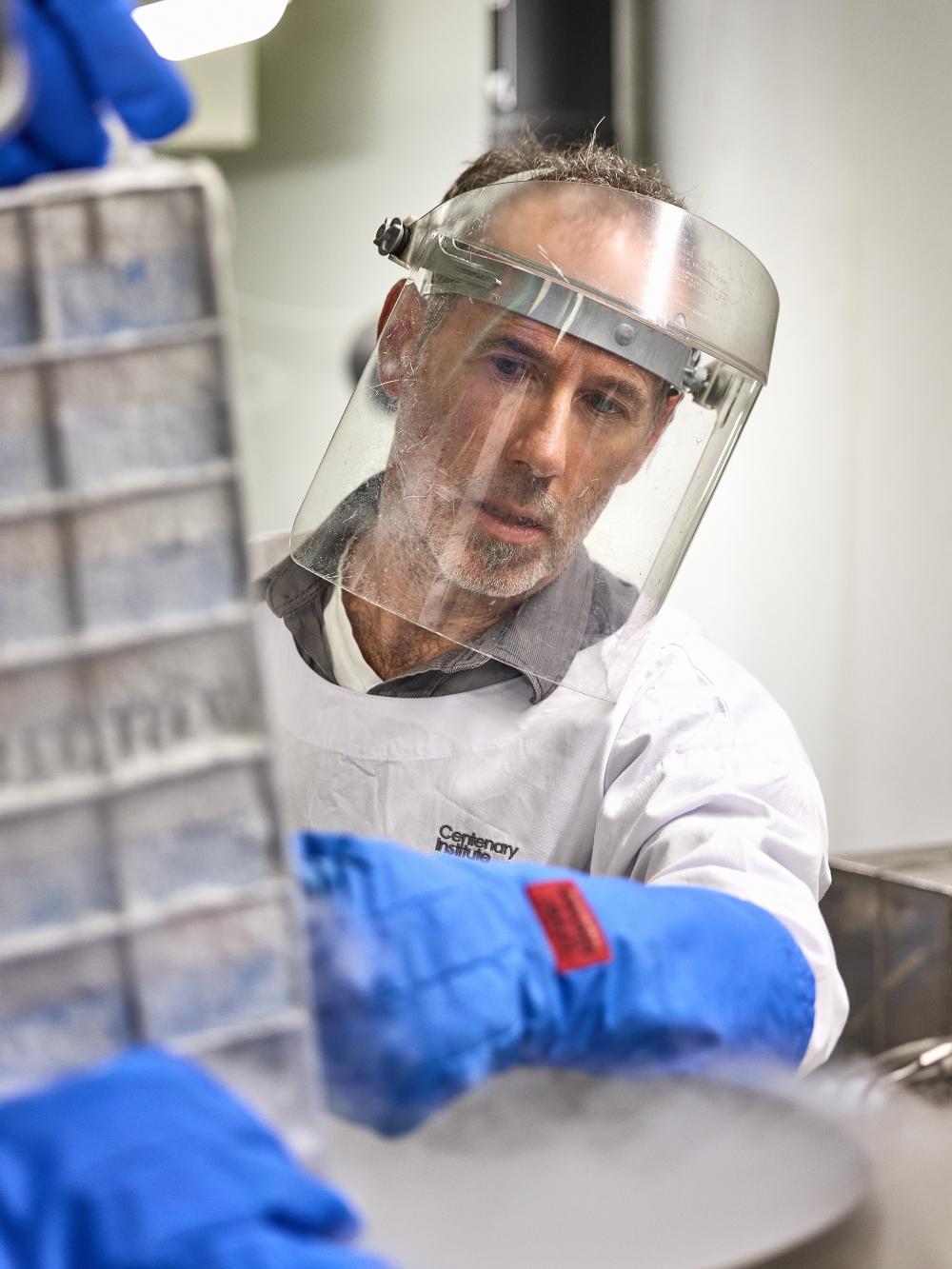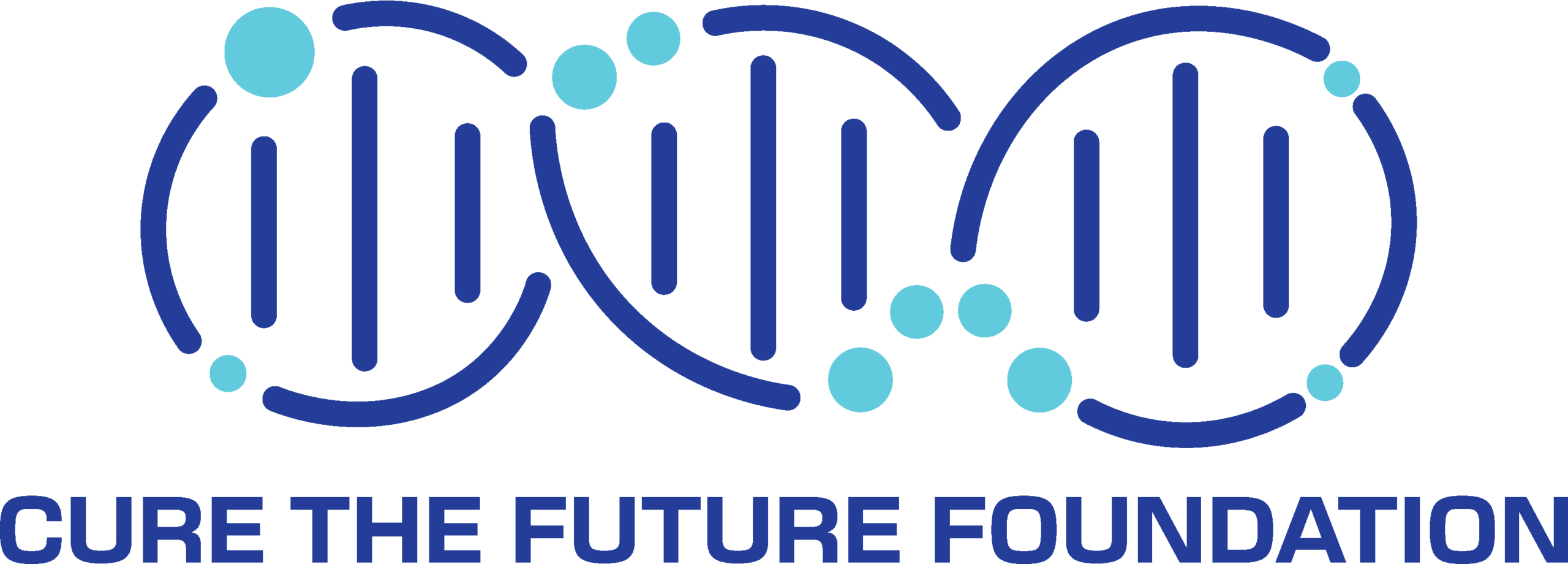Transforming Treatment with Targeted Gene Therapy
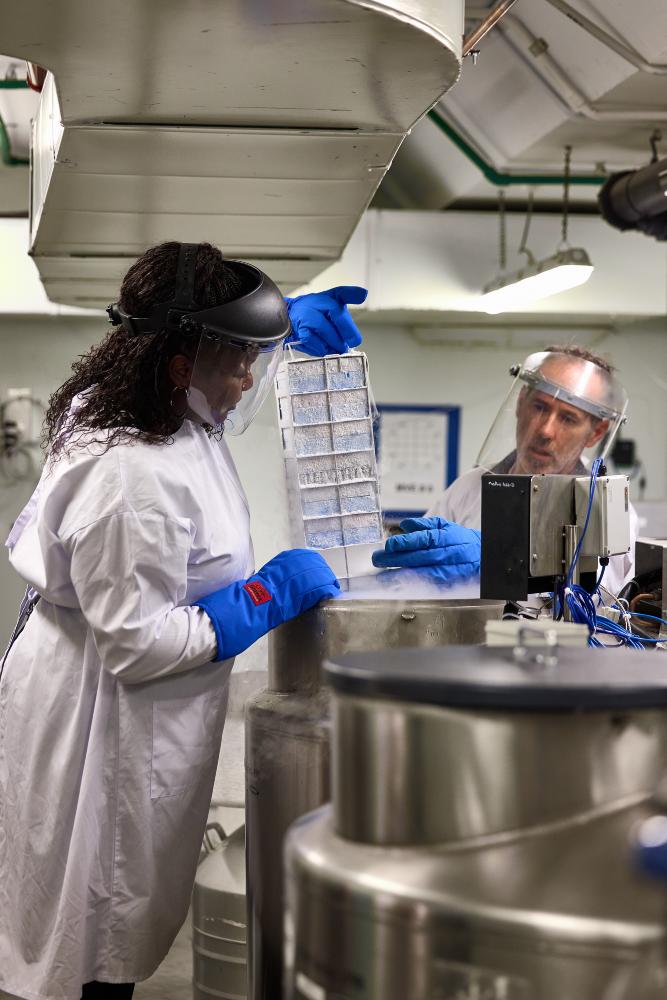
CURE THE FUTURE FOUNDATION
Imagine a future where diseases are treated at their source rather than just managing symptoms.
Gene therapy is making this vision a reality by repairing or modifying faulty genes within the body. This groundbreaking approach holds the potential to cure rare genetic disorders, offering new hope to patients and their families.
Explore Our Research
Cure The Future is supporting cutting-edge research that is revolutionizing genetic and cancer treatments.
Dr. Chuck Bailey and his team at the Cancer & Gene Regulation Laboratory, Centre for Rare Diseases & Gene Therapy at the Centenary Institute are leading three innovative projects:
🧬 AAV Gene Therapy for Pompe Disease – Advancing safer and more affordable treatments for genetic disorders.
🧬 Next-Generation Treatments for Autoimmune and Inflammatory Diseases – Targeting inflammation with precision to improve patient outcomes.
🧬 Revolutionising Cancer Treatment with CAR T Cell Therapy – Developing breakthrough immunotherapies for aggressive cancers.
CURE THE FUTURE FOUNDATION
🧬AAV Gene Therapy for Pompe Disease
Dr. Bailey’s team is pioneering adeno-associated virus (AAV)-based gene therapy to safely deliver healthy genes to targeted cells. Their focus is on Pompe Disease, a devastating condition that affects the body’s ability to break down glycogen, leading to heart failure, muscle weakness, and breathing difficulties. Infants with this disease often do not survive beyond their first year without treatment.
Why is this research game-changing?
-
AAV-based therapy has the potential to treat multiple genetic disorders, including those affecting the brain, liver, and eyes.
-
High-dose AAV treatments can be expensive and trigger immune responses.
-
This research aims to develop a low-dose, safer, and more affordable therapy, making life-saving treatment accessible to more patients.
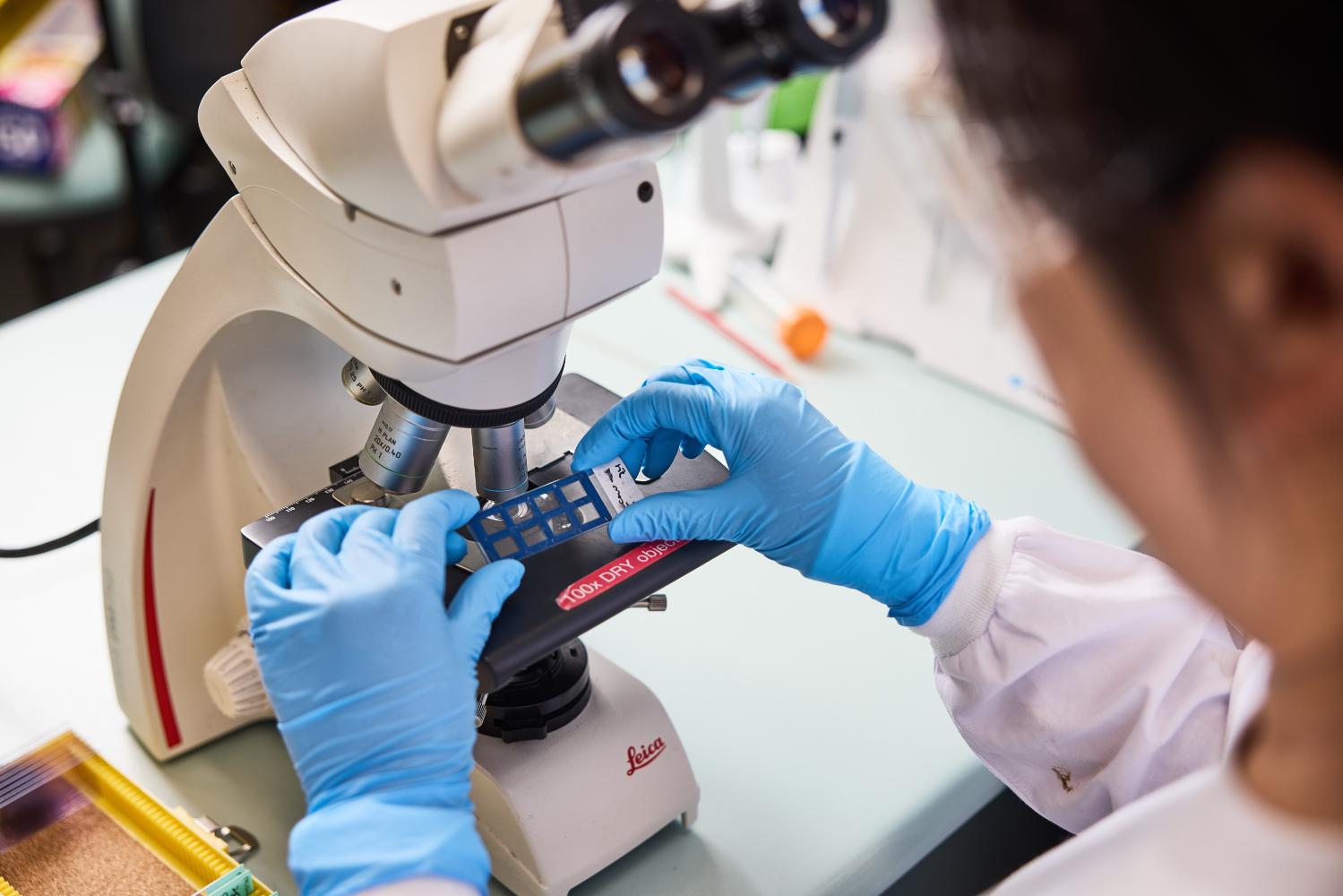
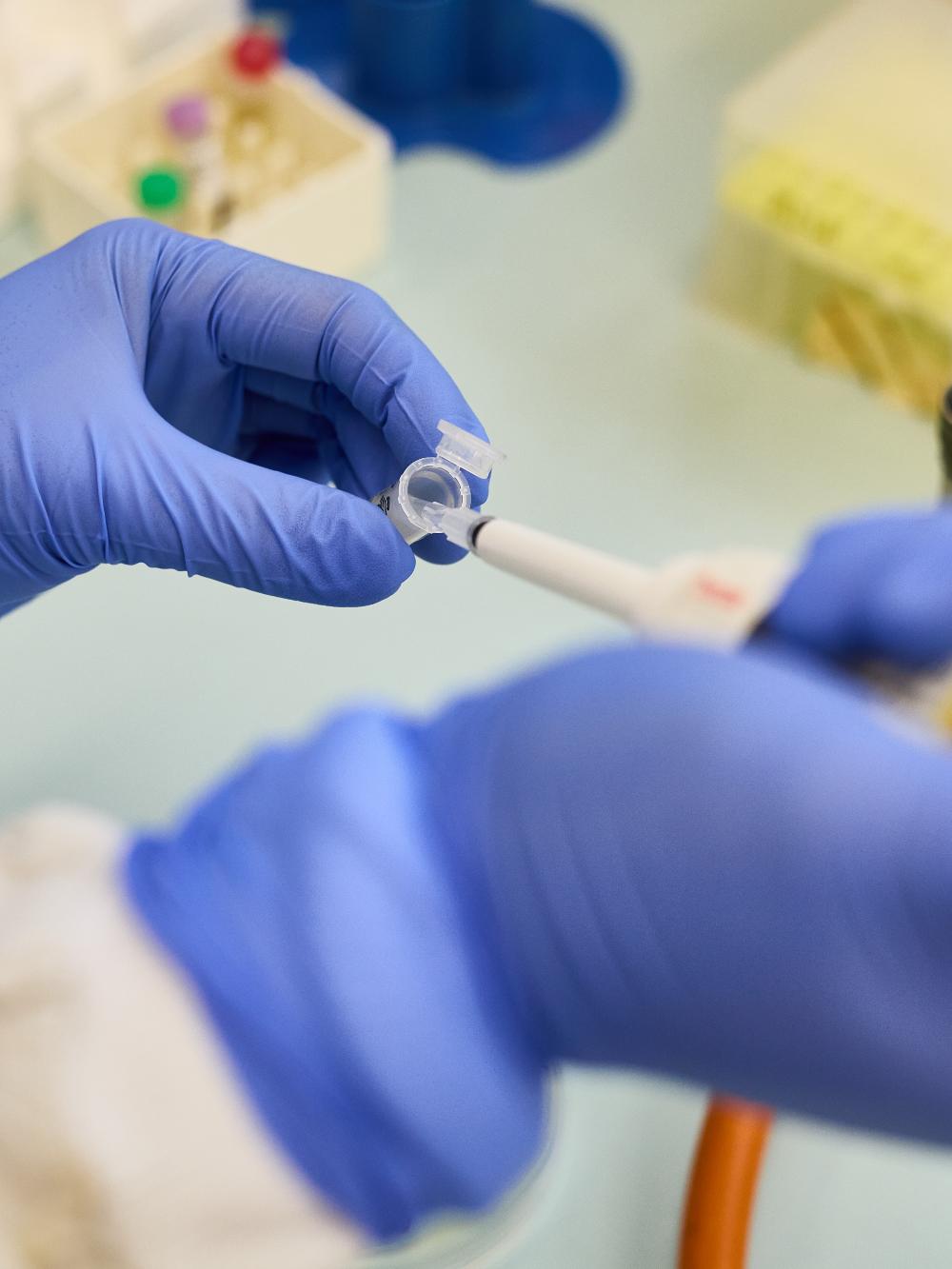
CURE THE FUTURE FOUNDATION
🧬 Next-Generation Treatments for Autoimmune and Inflammatory Diseases
Millions suffer from debilitating autoimmune diseases like lupus, multiple sclerosis, and rheumatoid arthritis. These conditions occur when the immune system mistakenly attacks healthy tissues, causing chronic inflammation and severe damage.
Targeting the IFN-α Pathway for Safer Treatments
Dr. Bailey’s team is developing a first-of-its-kind therapy that selectively targets the interferon (IFN-α) pathway—a major driver of autoimmune diseases. Unlike existing treatments that suppress the entire immune system, this innovative approach precisely regulates inflammatory genes without compromising overall immune function.
The impact of this breakthrough:
-
A more effective and safer treatment for neuroinflammatory and systemic autoimmune diseases.
-
A therapy that crosses the blood-brain barrier, opening doors for neurological treatments.
-
Fewer side effects and improved patient outcomes compared to current treatments.
This is more than a medical breakthrough—it’s a paradigm shift in how we treat genetic diseases.
CURE THE FUTURE FOUNDATION
🧬 Revolutionising Cancer Treatment with CAR T Cell Therapy
Immunotherapy is transforming cancer treatment, and CAR T cell therapy is at the forefront of this revolution. While highly effective against blood cancers, CAR T therapy faces challenges in treating solid tumours like pancreatic cancer and mesothelioma.
These breakthroughs are advancing next-generation cancer immunotherapies that could dramatically improve survival rates and treatment outcomes.
MSLN-Targeted CAR T Cell Therapy for Solid Tumours
Dr. Bailey’s team has developed three innovative CAR T cell therapies targeting mesothelin (MSLN), a cancer marker present in up to 90% of pancreatic, mesothelioma, lung, and ovarian cancers. These therapies aim to overcome the limitations that have previously hindered CAR T therapy in solid tumours.
How will this transform cancer treatment?
-
Enhanced CAR T cell potency to thrive in the tumour environment.
-
New combination therapies that prevent tumours from evading treatment.
-
More effective, personalized treatments for some of the most aggressive cancers
